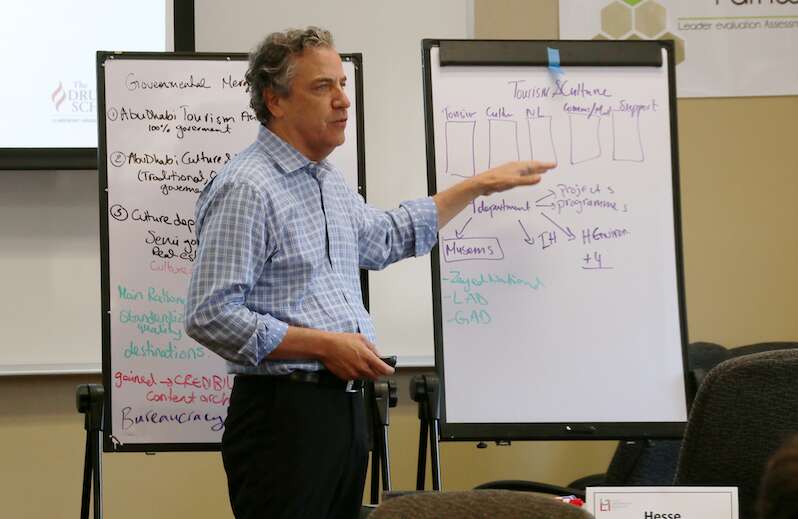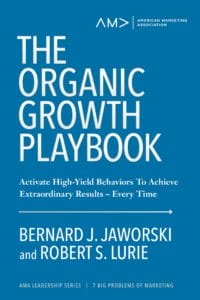Want better growth? Toss out the usual marketing playbook, says Jaworski and co-author

How do you accelerate revenue growth for your products in a competitive market?
That’s the question (and challenge) facing senior management in most companies. For the Drucker School’s Bernie Jaworski and his co-author, Robert Lurie, the best answer involves shifting away from the standard marketing approach that focuses mainly on differentiating your product from competitors.
Instead, in The Organic Growth Playbook: Activate High-Yield Behaviors To Achieve Extraordinary Results – Every Time (American Marketing Association, $14.95), Jaworski and Lurie draw on their extensive experience in the marketing field and the detailed stories of four companies that sparked fast revenue growth to argue for a more “holistic approach on customers’ purchasing behaviors.”
Rather than apply the same marketing playbook to every product, Jaworski (the Peter F. Drucker Chair of Management and Liberal Arts at the Drucker School) and Lurie (V.P. of Corporate Strategy, Eastman Chemical Company) insist that legitimate revenue growth rests squarely on identifying and activating a small number of behavior changes during the end-to-end customer buying process.
Identify and change such patterns, they argue, and revenue growth is sure to follow.

Starting with the example of the drug Terrafix, whose growth rate stalled until that pharmaceutical company’s marketing team took Jaworski and Lurie’s more holistic approach, the book ranges across industries and brands. In the process, the authors set down five principles (one principle is: “Unearth the critical drivers and barriers of target behavior”) for a systematic approach to help companies overcome the typical dead-ends of more traditional methodologies.
If a company still wants fast growth but doesn’t want to follow this approach, there’s only one alternative: They will have to buy that growth by acquiring another company.
“Growth through acquisition is certainly easier and quicker than growing by outcompeting rivals,” the authors write early in the book. “Nonetheless, profitable, steady organic growth—be it by taking market share from competitors or by convincing existing customers to consume more of the product—is the acid test for companies and managers.”
Considering that the authors offer a tried and tested approach here (it is already employed by a number of Fortune 500 companies), a marketing team that ignores such good advice does so at their peril.
The Organic Growth Playbook is the latest addition to the American Marketing Association’s “7 Big Problems of Marketing” book series. Visit here to learn more about the series and Jaworski and Lurie’s new book.